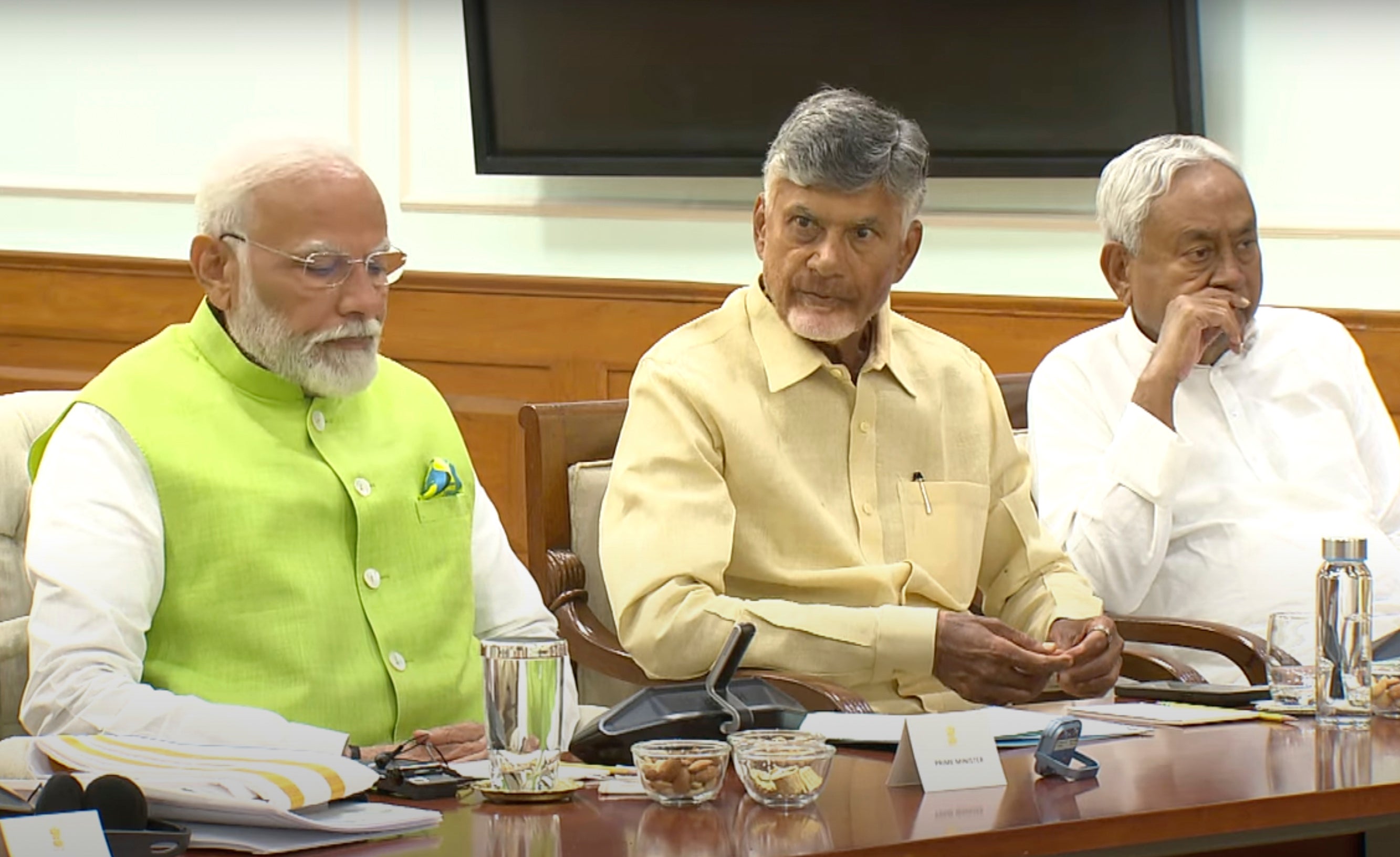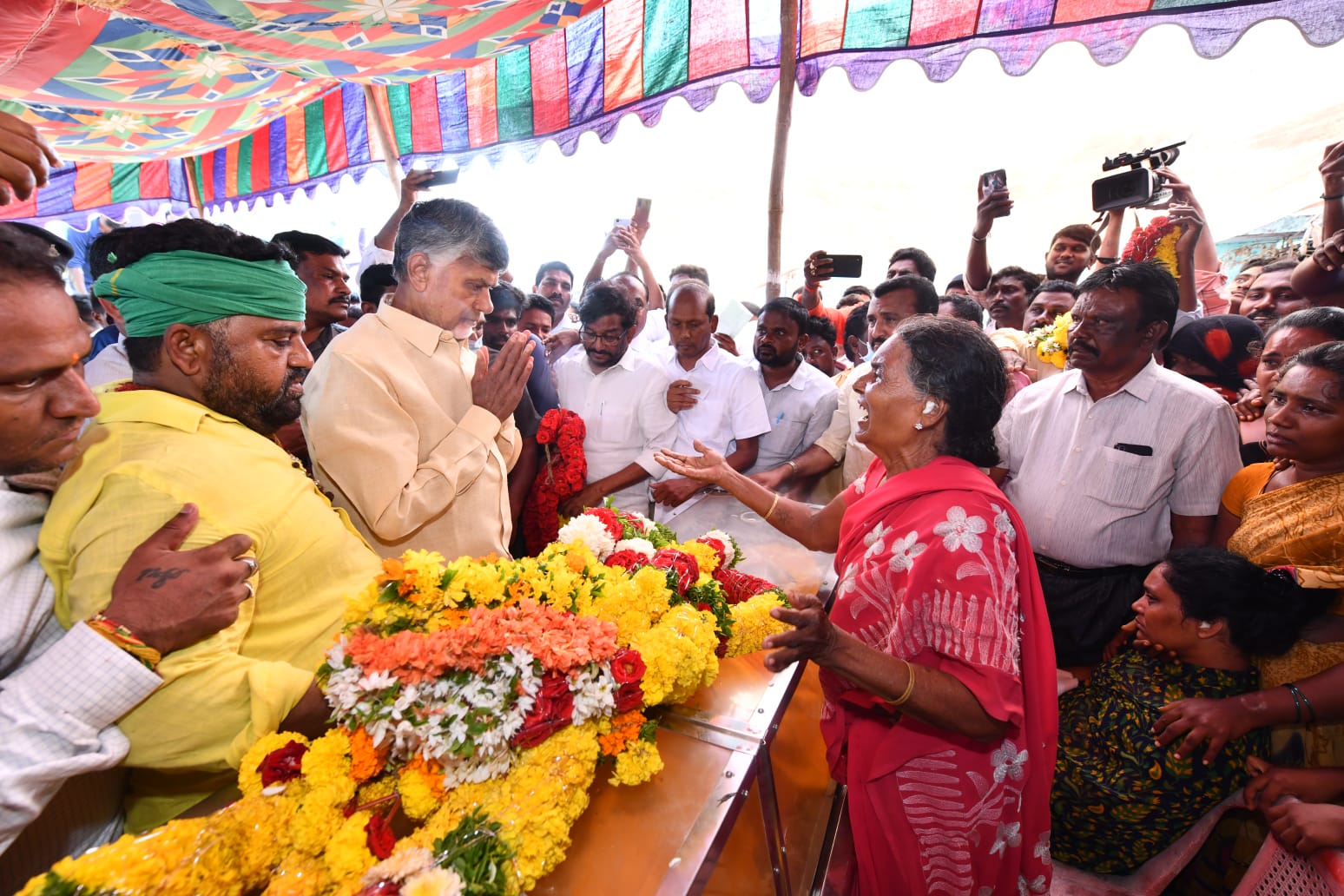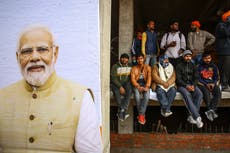Who are Modi’s coalition allies-turned-kingmakers and what will they want in return?
Regional heavyweights have emerged as key partners to prop up Modi’s third term – but have been mercurial in the past

Two regional stalwarts have emerged as kingmakers with the power to make or break Narendra Modi’s new government and secure his future as the prime minister for the third time.
Mr Modi’s Hindu-nationalist Bharatiya Janata Party (BJP) failed to cross the majority mark in the recently held general elections to form the government on their own. The BJP will now have to form a coalition government with other members of the National Democratic Alliance (NDA), where minor partners would have a substantial say in policymaking.
The BJP managed to secure victory in 240 seats of the Lok Sabha (lower house) of parliament – 32 seats short of the majority mark required to form a government.
Follow our live coverage on 2024 Indian elections.
The opposition INDIA alliance, led by the Indian National Congress, won a total of 232 seats out of 543 in an impressive comeback, doubling its strength from the last election.
Telugu Desam Party's (TDP) N Chandrababu Naidu and Janata Dal (United)'s Nitish Kumar, two emerging kingmakers who have been turncoat BJP allies over the years, have begun negotiations and placed hefty demands, including ministerial berths for their parties and special statuses for their states.
The wrangling in Delhi on Wednesday evening and Thursday appears to have been tougher than the BJP anticipated, and plans for Mr Modi’s third inauguration as prime minister to take place on Saturday have now been pushed back by a day, according to Indian media reports.
The TDP, a regional party from Andhra Pradesh state, secured 16 seats in the election, while Mr Kumar's JD(U) from Bihar state won 12 seats.

Formally the NDA alliance partners have officially announced their support for Mr Modi to become prime minister, a position they reached after Wednesday’s talks. The alliance partners were made to sign written pledges of support for Mr Modi amid reports that the opposition was sending out feelers over their allegiance.
Shortly after the results were declared, Congress spokesperson Jairam Ramesh reiterated that the party in its 2024 election manifesto pledged to declare special category status to Andhra Pradesh in an effort to gain Mr Naidu's favour.
A special category status for the southern state of Andhra Pradesh has been a longstanding demand since its bifurcation in 2014 into Telangana and the residuary state of Andhra Pradesh. A similar demand has been raised by Mr Kumar for his home state of Bihar in the east.

Both Mr Naidu and Mr Kumar know they have Mr Modi at a huge disadvantage – if either one were to withdraw support it would leave the NDA with only a wafer-thin majority.
On Thursday the JD(U)’s national spokesperson publicly declared that the party would seek to pressure Mr Modi to repeal controversial military recruitment reforms that the BJP passed in 2022. The Agnipath scheme tried to revolutionise an ageing armed forces by introducing US and UK-style tours of duty, rather than jobs for life in the army. The JD(U) said voters in Bihar had been “upset over the scheme” and they would seek to have it reversed or reworked once they are in coalition government.
With his 16 seats, Mr Naidu is the most crucial ally for the BJP within the NDA, having swept the general and state assembly elections in Andhra Pradesh this summer. He is on the path to becoming the chief minister and does not require the BJP's support to form a state government.
But the BJP would be in a very difficult position should he pull away from the NDA group on the federal level.
"How can we contest elections if we are not a part of the NDA? We fought this collectively. I don't know why you have a doubt," Mr Naidu told reporters when asked about the alliance.
The 74-year-old, who once aspired to be India's prime minister, has demanded five ministerial berths for his party members, including the junior finance minister post and the speaker's position in the Lok Sabha, NDTV reported.
Mr Naidu's TDP contested the general elections in 2014 with the BJP, which catapulted Mr Modi to power. However, the camaraderie lasted till 2018 when Mr Naidu left the NDA alliance ahead of assembly elections citing the BJP's failure to fulfil any promises for his state.
He joined the Congress party alliance in 2019 but soon distanced himself from the coalition following their spectacular poll debacle. Mr Naidu rejoined the NDA group in March 2024, just a few weeks ahead of the general elections.
Mr Naidu is credited with playing a key role in helping HD Devegowda and IK Gujral become prime ministers during the coalition era in the 1990s.

Nitish Kumar is the third key member of the NDA group with a notorious history of switching loyalties over the decades.
The 73-year-old regional leader and a nine-time chief minister from Bihar joined the NDA group in January this year after breaking ties with the INDIA alliance. In the last decade, Mr Kumar has switched between NDA and the opposition alliance in his state and at the federal stage several times according to his whims.
With 12 elected Lok Sabha members, Mr Kumar has reportedly demanded at least two cabinet roles and one junior minister position for his party. He is expected to push for the post of the federal railway minister along with the implementation of a Common Minimum Programme.
The common minimum programme, which envisages policy, priorities and shared agenda of a coalition government or an alliance, could be a setback for the BJP's aspirations to implement sweeping laws.
Besides the two crucial members, the BJP would also have to accommodate other NDA partners such as Shiv Sena's Eknath Shinde in Maharashtra, Janata Dal (Secular) leader HD Kumaraswamy from Karnataka, Jana Sena's Pawan Kalyan in Andhra Pradesh and Bihar's Lok Janshakti Party.
Join our commenting forum
Join thought-provoking conversations, follow other Independent readers and see their replies
Comments


Bookmark popover
Removed from bookmarks